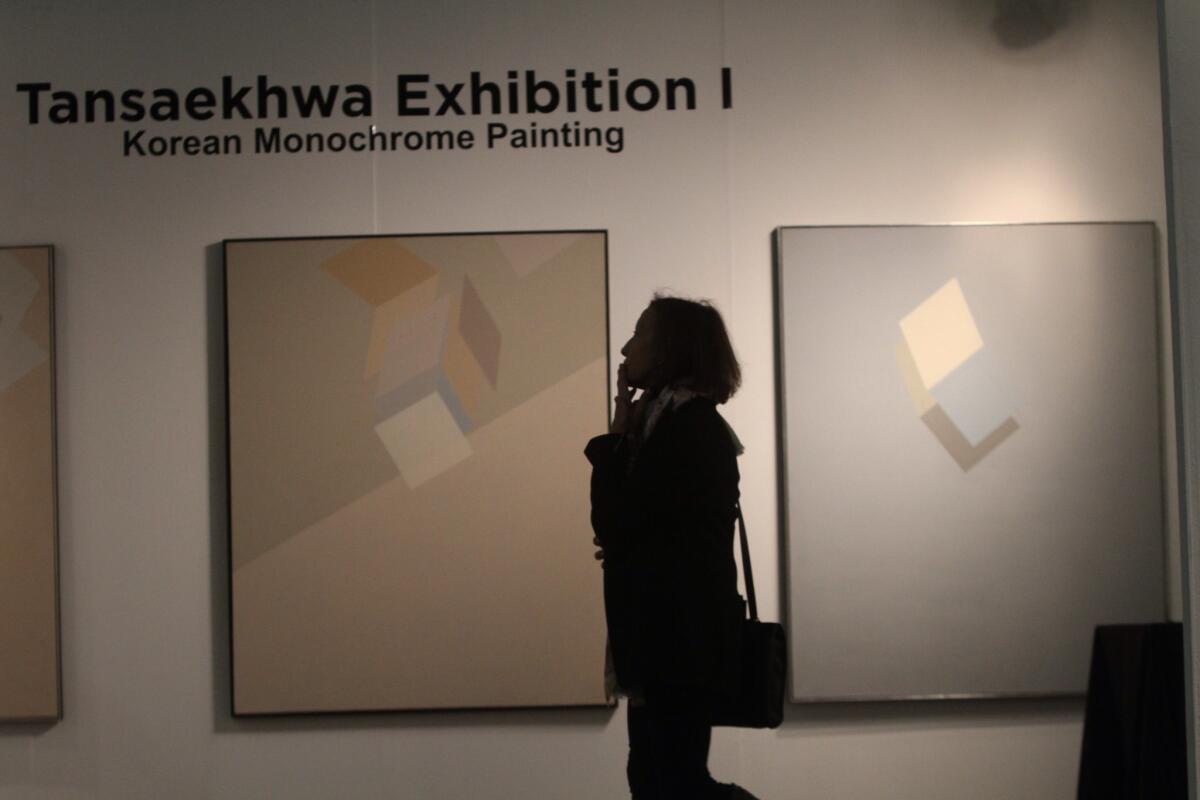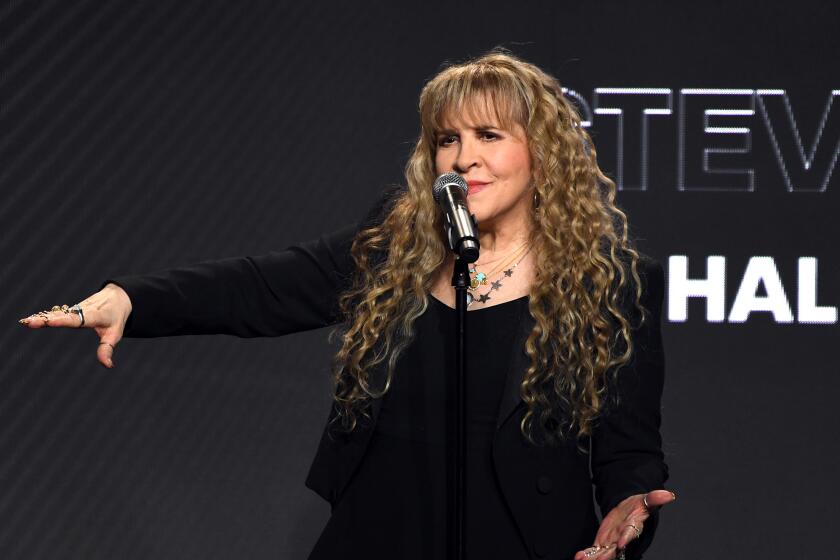LA Art Show: Intersection of Latin America and Pacific Rim

- Share via
A towering crimson public-art sculpture by Cuban artist Angel Ricardo Ricardo Rios greeted the crowd filling the downtown convention center for the LA Art Show on Friday morning. Two other works, 26 feet tall, loomed in the lobby.
Part of a special exhibition of Cuban artists organized by Latin American curator Marisa Caichiolo, the inflatable, plant-like sculpture added a bit of levity to the second day of the art show’s four-day run.
Nearby, an enormous “Matrix”-like painting by Justin Bower of an anonymous face the artist found on the Internet, being shown by Ace Gallery, displayed nearly assaultive multicolored hues.
One of the highest-profile exhibitions, however, was nearly devoid of color.
In an effort to represent more art from the Pacific Rim, the LA Art Show is featuring a special exhibition of Tansaekhwa from Korea, a mid-century movement of subtle but striking monochromatic works.
The paintings in the exhibition, co-curated (along with several Korean galleries) by Hoojung Lee, the show’s director of Korean affairs, are largely pale, almost translucent abstracts that have surprising depth -- shadows and shapes emerge after looking into them for a while.
A series of three paintings by Seung Won Suh depict floating cubes rimmed with refined lines against nude and pale gray palettes. Another work, by Myoung Young Choi, depicts rows of seemingly rapid-fire brushstrokes, all embossed in light blue paint.
“This is a really hot movement right now,” said the art show’s general manager, Kim Martindale. “In the late ‘60s and ‘70s, many top collectors and galleries in Korea were excited about these and collected these materials; but they weren’t as poppy or shocking as a Rothko and the stuff coming out of New York and Europe at the time, and they were overlooked.”
Tansaekhwa is undergoing a resurgence around the world, Martindale says.
“Interest back then didn’t translate on a global scale because not as many eyes in the art world were on Asia,” he says. “But they are now. And there’s been renewed interest in Tansaekhwa in the last few years.”
The art show also is featuring nine Japanese galleries this year showing pop surrealism, manga and other works.
A special exhibition of contemporary Chinese ink paintings are modern and witty -- one painting, by Zhang Yujun, is a close-in, black-and-white portrait of Bruce Lee.
Others, by Li Gang, are abstract, graphic works with text elements reminiscent of graffiti art. Both artists are well known in China, less so in the U.S. Which is partly why they are being featured so prominently.
“L.A. is the hub for the U.S. of the Pacific Rim,” Martindale says. “And as L.A. becomes more and more the center of the art world in this country, it’s important our show reflects Asia and Latin America. L.A.’s communities are reflective of that, and it’s important our show is too.”
Twitter: @debvankin
More to Read
The biggest entertainment stories
Get our big stories about Hollywood, film, television, music, arts, culture and more right in your inbox as soon as they publish.
You may occasionally receive promotional content from the Los Angeles Times.











